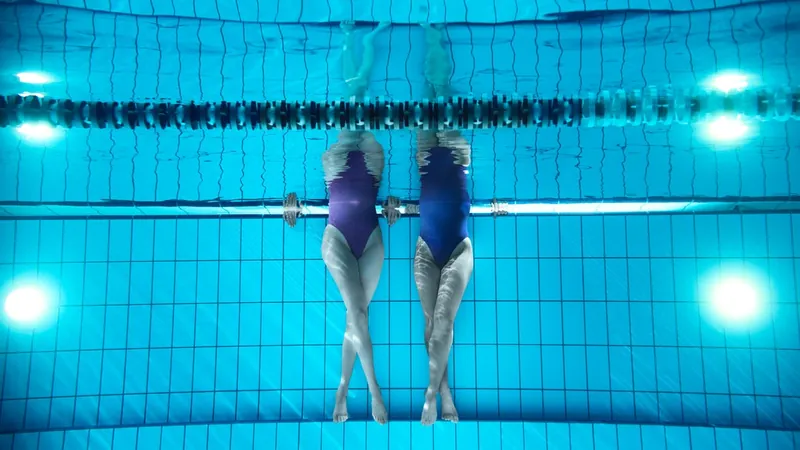
The Shocking Truth About Peeing in Pools: What You Need to Know!
2025-08-17
Author: Arjun
You’ve probably slipped into the pool without a second thought about peeing in it—so what really happens when you do? You might be surprised to learn just how common this swimming pool taboo is; a survey found that a staggering 40% of American adults admitted to using the pool as a bathroom. But how bad can it actually be?
Research published in *Environmental Science & Technology Letters* found alarming data: in one 220,000-gallon pool, there were about 20 gallons of urine detected. Yes, you read that right—20 gallons! So, when you dive in this summer, the odds are you might be splashing around in some pee.
What Really Happens When You Pee in a Pool?
When urine mixes with pool chemicals, especially chlorine, some not-so-pleasant things can happen. According to Dr. Kelly Johnson-Arbor, a toxicologist, uric acid and nitrogen compounds in your pee can react with chlorine to create disinfection byproducts (DBPs) that pose health risks.
One of these reactions produces chloramines—compounds that not only make that characteristic ‘chlorine’ smell but can also irritate your skin, eyes, and lungs. The Centers for Disease Control and Prevention warns that while urine isn’t sterile, most of us don’t carry infectious pathogens in the amount that chlorine can’t handle; it’s the interaction with organic matter that becomes the real issue.
Is It a Big Deal?
From a health perspective, it depends. Dr. Thomas Russo points out that peeing in a well-chlorinated pool typically doesn’t pose a significant health risk; however, it doesn’t mean you should disregard the act entirely. Chloramines produced during these reactions can lead to skin and respiratory problems, especially for individuals with conditions like asthma.
Moreover, poor ventilation can exacerbate the situation, allowing chloramines to linger in the air and clinging to surfaces. This brings a higher risk of irritation for swimmers.
What About Saltwater Pools?
Wonders of modern pool technology! Saltwater pools still produce chlorine through electrolysis, which means the same chemistry applies. Peeing in a saltwater pool will also lead to the formation of harmful DBPs.
What If Only One Person Pees?
You might think that one person’s urine wouldn’t make a difference in a massive pool. The good news is that if it’s a large pool and just one person is doing the deed, the impact will likely be minimal. However, a small pool is a different story—especially if multiple people are contributing to the overall organic matter.
Also remember, urine isn’t the only culprit. Sweat, skin cells, and other organic materials can also affect the water quality.
The Bottom Line: Think Twice!
While a little pee may not be the end of the world—especially in well-maintained pools—it’s always a good idea to think twice before you let loose. Remember, staying clean isn’t just about enjoying your swim; it’s about respecting your fellow swimmers and maintaining a safe swimming environment. So next time you’re eyeing that poolside urge, consider taking the trip to the restroom instead!


 Brasil (PT)
Brasil (PT)
 Canada (EN)
Canada (EN)
 Chile (ES)
Chile (ES)
 Česko (CS)
Česko (CS)
 대한민국 (KO)
대한민국 (KO)
 España (ES)
España (ES)
 France (FR)
France (FR)
 Hong Kong (EN)
Hong Kong (EN)
 Italia (IT)
Italia (IT)
 日本 (JA)
日本 (JA)
 Magyarország (HU)
Magyarország (HU)
 Norge (NO)
Norge (NO)
 Polska (PL)
Polska (PL)
 Schweiz (DE)
Schweiz (DE)
 Singapore (EN)
Singapore (EN)
 Sverige (SV)
Sverige (SV)
 Suomi (FI)
Suomi (FI)
 Türkiye (TR)
Türkiye (TR)
 الإمارات العربية المتحدة (AR)
الإمارات العربية المتحدة (AR)